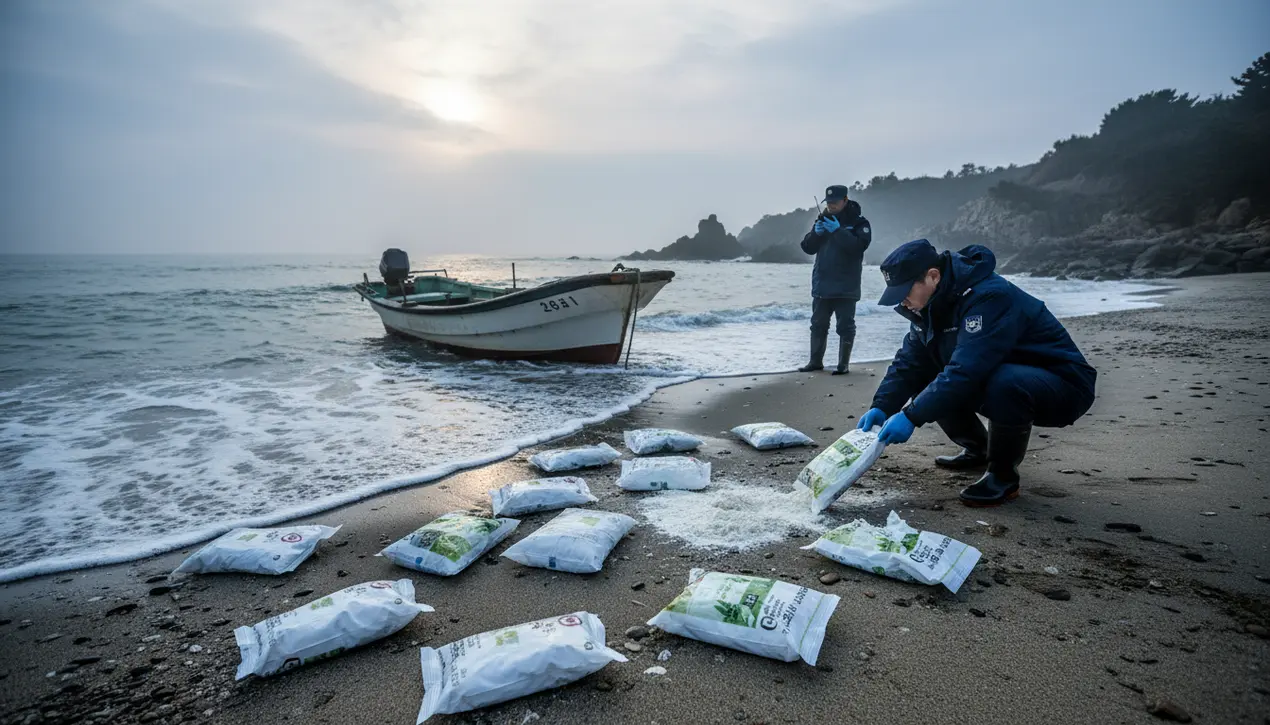
Otherlaw & courtsCriminal Cases
Drugs Disguised as Tea Wash Ashore on South Korean Island.
OL
Oliver Scott
4 hours ago7 min read
The discovery of 28 kilograms of ketamine, meticulously packaged to resemble commercial tea bags and washing ashore on the beaches of a South Korean island over the past two months, represents more than a bizarre maritime incident; it is a stark signal of a sophisticated narcotics supply chain probing for vulnerabilities. This isn't a simple case of lost contraband.The deliberate disguise points to a calculated operational tactic, likely a test run by a transnational criminal syndicate to gauge the efficacy of a new smuggling route into the lucrative Asian drug market. The chosen location, a remote island, is a classic risk-mitigation strategy, allowing traffickers to avoid the hardened security of major ports like Busan or Incheon.We can analyze this event through a scenario-planning lens: Scenario A, the most likely, is that this was an intentional jettison—a controlled dump by a mothership after a rendezvous with a smaller vessel was compromised or as a pre-emptive measure to avoid interdiction by the South Korean Coast Guard, which has recently bolstered its patrols. The packages, designed to float and withstand the elements, would then be collected by accomplices onshore.Scenario B, less probable but plausible, involves a genuine maritime accident where a smuggling vessel encountered severe weather, forcing the crew to abandon their cargo. The immediate consequence is a local public health crisis, flooding an unsuspecting community with a high-purity, dissociative anesthetic that poses severe risks of addiction and overdose.The broader, more systemic risk is the demonstrated adaptability of cartels. This method echoes historical precedents, such as cocaine bricks washing up in Florida during the 1980s or more recent opium packages found on Indian coastlines, indicating a global playbook for maritime drug infiltration.For South Korean authorities, this is a critical intelligence failure, exposing gaps in coastal surveillance and interdiction capabilities. The strategic implication is a potential shift in the regional drug trade, suggesting that syndicates are seeking to establish new logistical corridors into one of Asia's most restrictive markets, potentially leveraging the complex maritime borders and heavy shipping traffic of the Yellow Sea. This incident should trigger not just a localized clean-up operation, but a comprehensive reassessment of naval and law enforcement coordination to counter this emerging, fluid threat to national security.
#drug trafficking
#ketamine
#South Korea
#Jeju Island
#washed ashore
#illegal drugs
#law enforcement
#featured
Stay Informed. Act Smarter.
Get weekly highlights, major headlines, and expert insights — then put your knowledge to work in our live prediction markets.
Comments
Loading comments...
© 2025 Outpoll Service LTD. All rights reserved.